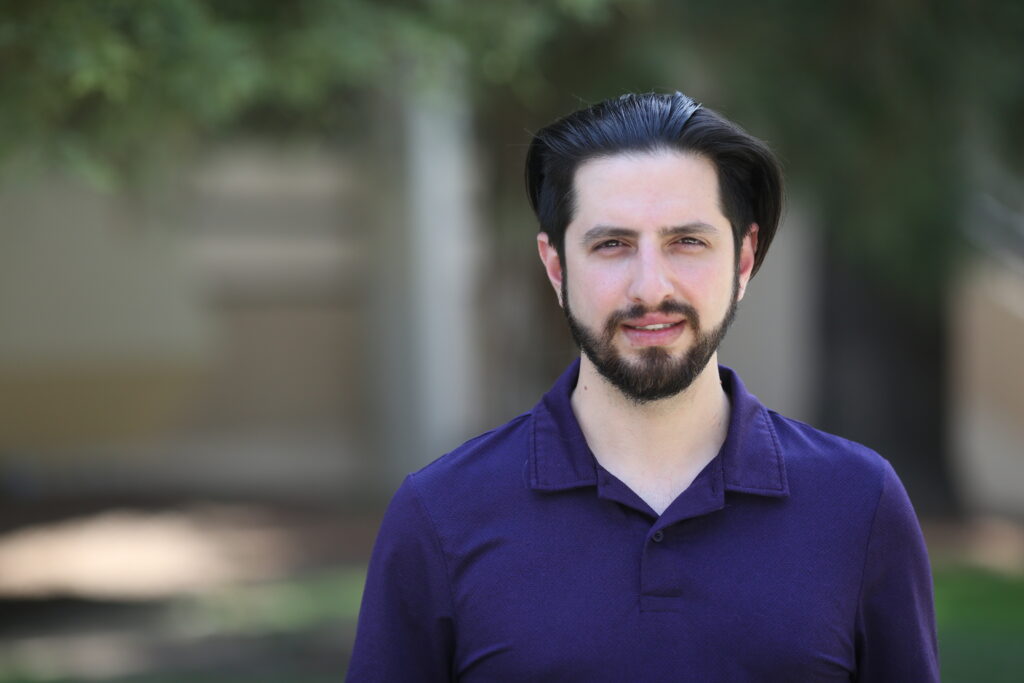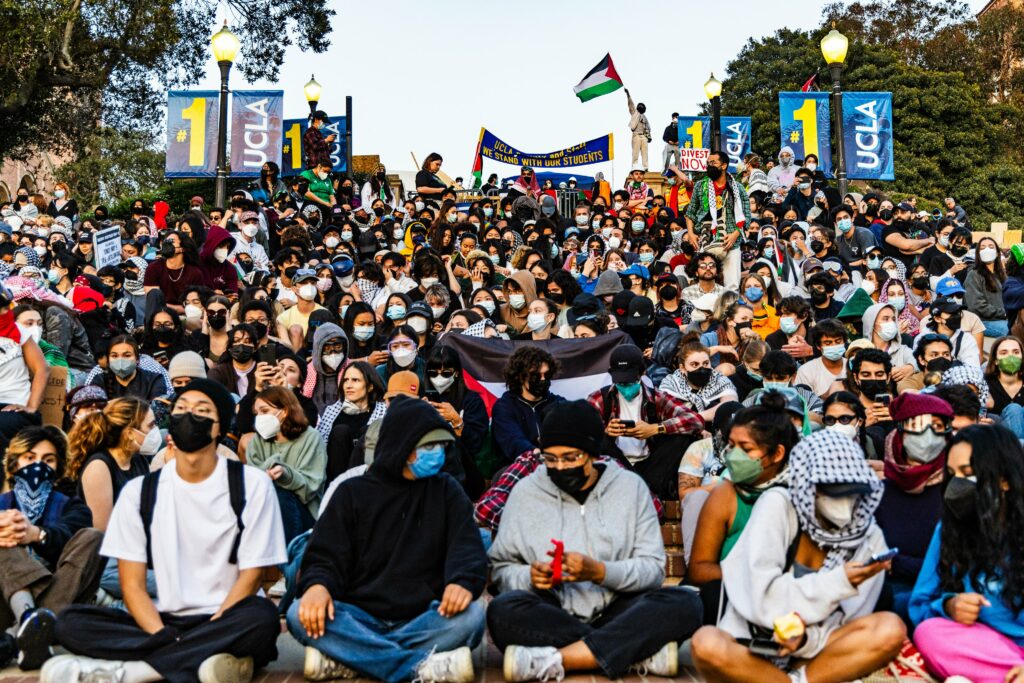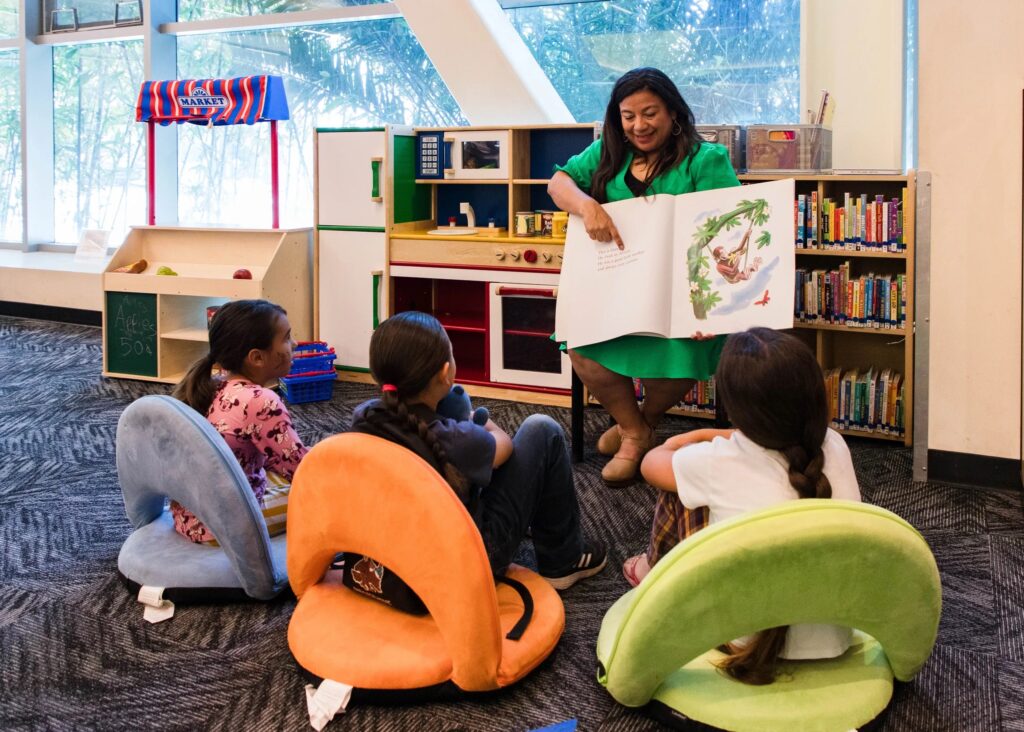
Tom Boroujeni, Fresno City College academic senate president.
Credit: Mark Tabay / Fresno City College
The State Center Community College District placed Fresno City College instructor and president of the school’s Academic Senate, Tom Boroujeni, on administrative leave late Thursday, district officials said in a statement.
District officials cited no specific reason for the action. It takes effect immediately.
The move came one day after EdSoruce reported that in 2021 Fresno State University determined that in 2015, Boroujeni “committed an act of sexual violence” against a professor who also teaches part-time at Fresno City College. He denies committing the act.
Chancellor Carol Goldsmith did not respond to messages Thursday night.
Boroujeni did not respond to messages following the district’s brief announcement.
In a message to the City College campus community Thursday, President Robert Pimentel wrote that “investigative action” was being taken, and that “the college takes allegations of this nature very seriously.” He did not explain the specific allegations.
Boroujeni, 38, of Clovis, is also known as Farrokh Eizadiboroujeni and Tom Eizadi, documents show. He has taught at Fresno City College since 2015, the same year he began his academic career at Fresno State while still a graduate student.
Earlier Thursday, three female instructors in the communication department at Fresno City College refused to teach their classes, citing the EdSource report.
Tiffany Sarkisian, the college’s program-review coordinator and a communication arts instructor, told the administration and her students that she and others decided to stay off campus in an effort to advocate for a safe teaching, learning and working environment.
“The environment at FCC (Fresno City College) grows more toxic and unsafe by the day, especially as an abuser has been – and continues to be – protected by various campus leaders,” she emailed college administrators.
Late Thursday, after learning the district put Boroujeni on administrative leave, Sarkisian said the college’s decision was appropriate.
“It provides a space where other parties can feel safe to actually do the job of teaching and learning,” she said, but the paid administrative leave is “essentially rewarding (him) for behaving badly.”
She added that the college had deeper problems than Boroujeni. “It’s not just this individual being a bad actor; it’s institutionalized practices and structures that allowed this to continue for so long.”
“This (was) another example of an institution protecting the abuser and not the victim,” she told EdSource. “What happened on our campus should not have happened, and there should have been other structures in place.”
Boroujeni told EdSource in an interview that he also faces complaints from three female employees of the college for what he described as gender discrimination.
He was also reprimanded last year by Cyndie Luna, dean of the school’s Fine, Performing and Communication Arts Division, for unprofessional conduct that included allegedly referring to a colleague with an apparent racial slur and threatening “to get” the colleague, according to a copy of the reprimand letter EdSource obtained. Boroujeni claimed Luna fabricated the slur and threat she attributed to him, adding, she “makes things up all the time.”
He also claimed that a Fresno State professor was lying when she told an investigator that she did not consent to sex with Boroujeni in her apartment on June 21, 2015, and that he “pinned down her upper region” and that she “zoned out” during what followed.
EdSource does not identify victims of sexual abuse or violence. The woman declined to be interviewed.
Boroujeni told EdSource the woman made up the assault allegation in retribution for a sexual harassment allegation he brought against her, claiming she seduced him into a relationship he didn’t want but entered into out of fear that she would undermine his ability to earn a master’s degree and become a Fresno State instructor.
That claim, which Bouroujeni linked to his removal in 2020 as coach of the school’s nationally prominent debate team, was dismissed by a university investigator.
It was during the probe of his claim that the alleged victim told the investigator about what happened at her apartment on June 21, 2015. The investigator determined she was credible and found that Boroujeni committed what Fresno State has called “an act of sexual violence.”
The university couldn’t discipline him because he was a graduate student when the alleged violence occurred. Boroujeni resigned from Fresno State last year after officials said a report on the matter would be placed in his personnel file when he was up for a performance review.
In his resignation, he agreed to not seek or accept work in the California State University system again.
But the matter had no immediate impact on his teaching a few miles away at Fresno City College, where the victim teaches part-time in addition to her tenured position at Fresno State.
A State Center Community College District document obtained by EdSource shows that “in August 2021, (the victim) sought a ‘no contact order’ from Fresno City College against Tom Boroujeni… as a result of a sexual misconduct investigation at CSU Fresno.” The ‘no contact order’ was granted, the document, titled an “Administrative Determination,” states.
The district granted Boroujeni tenure in March. He assumed the academic senate presidency in May, after a two-year term as president elect.
Jill Wagner, spokesperson for SCCCD, told EdSource that Boroujeni’s tenure committee “considered multiple factors in favor of granting tenure, and areas of concern were not identified” at the time of the review. Asked if the committee that considered Boroujeni’s tenure had access to or was of the district’s administrative determination which confirmed Fresno State’s finding that an act of sexual violence had occurred, Wagner did not respond directly, writing instead that the district followed state law and the district’s union contract, “which prescribes what information can be included in tenure review.”
Boroujeni told Edsource that he “got tenured with the district’s knowledge of everything that had happened.”







